Example: PID Design Method for DC Motor Speed
Control
Proportional
control
PID
control
Tuning
the gains
From the main problem, the dynamic equations and the open-loop
transfer function of the DC Motor are:



and the system schematic looks like:
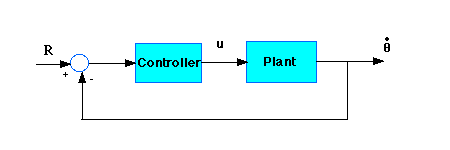
With a 1 rad/sec step input, the design criteria are:
- Settling time less than 2 seconds
- Overshoot less than 5%
- Steady-stage error less than 1%
Now let's design a PID controller and add it into the system. First create a
new m-file and type in the following commands .
J=0.01;
b=0.1;
K=0.01;
R=1;
L=0.5;
num=K;
den=[(J*L) ((J*R)+(L*b)) ((b*R)+K^2)];
Recall that the transfer function for a PID controller is:

Proportional control
Let's first try using a proportional controller with a gain of 100. Add the
following code to the end of your m-file:
Kp=100;
numa=Kp*num;
dena=den;
To determine the closed-loop transfer function, we use the cloop command. Add the following line to your m-file:
[numac,denac]=cloop(numa,dena);
Note that numac and denac are the numerator and the
denominator of the overall closed-loop transfer function.
Now let's see how the step response looks, add the following to the end of
your m-file, and run it in the command window:
t=0:0.01:5;
step(numac,denac,t)
title('Step response with Proportion Control')
You should get the following plot:
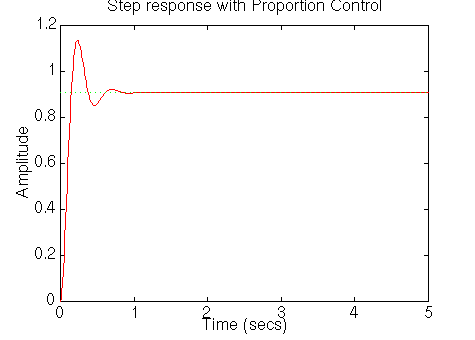
PID control
From the plot above we see that both the steady-state error and the overshoot
are too large. Add an integral term will eliminate the steady-state error and a
derivative term will reduce the overshoot. Let's try a PID controller with small
Ki and Kd. Change your m-file so it looks like the following. Running this new
m-file gives you the following plot.
J=0.01;
b=0.1;
K=0.01;
R=1;
L=0.5;
num=K;
den=[(J*L) ((J*R)+(L*b)) ((b*R)+K^2)];
Kp=100;
Ki=1;
Kd=1;
numc=[Kd, Kp, Ki];
denc=[1 0];
numa=conv(num,numc);
dena=conv(den,denc);
[numac,denac]=cloop(numa,dena);
step(numac,denac)
title('PID Control with small Ki and Kd')
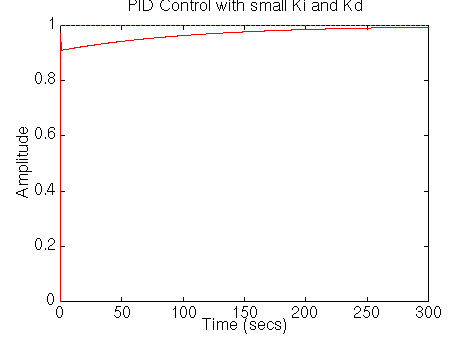
Tuning the gains
Now the settling time is too long. Let's increase Ki to reduce the
settling time. Go back to your m-file and change Ki to 200. Rerun the
file and you should get the plot like this:
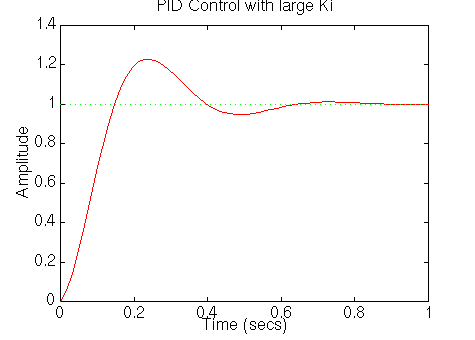
Now we see that the response is much faster than before, but the large Ki has
worsened the transient response (big overshoot). Let's increase Kd to reduce the
overshoot. Go back to the m-file and change Kd to 10. Rerun it and you should
get this plot:
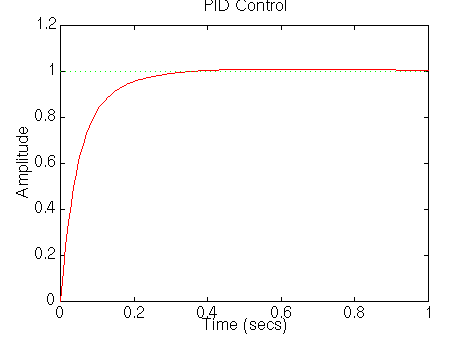
So now we know that if we use a PID controller with
Kp=100,
Ki=200,
Kd=10,
all of our design requirements will be satisfied.
[ Table des matières ]








